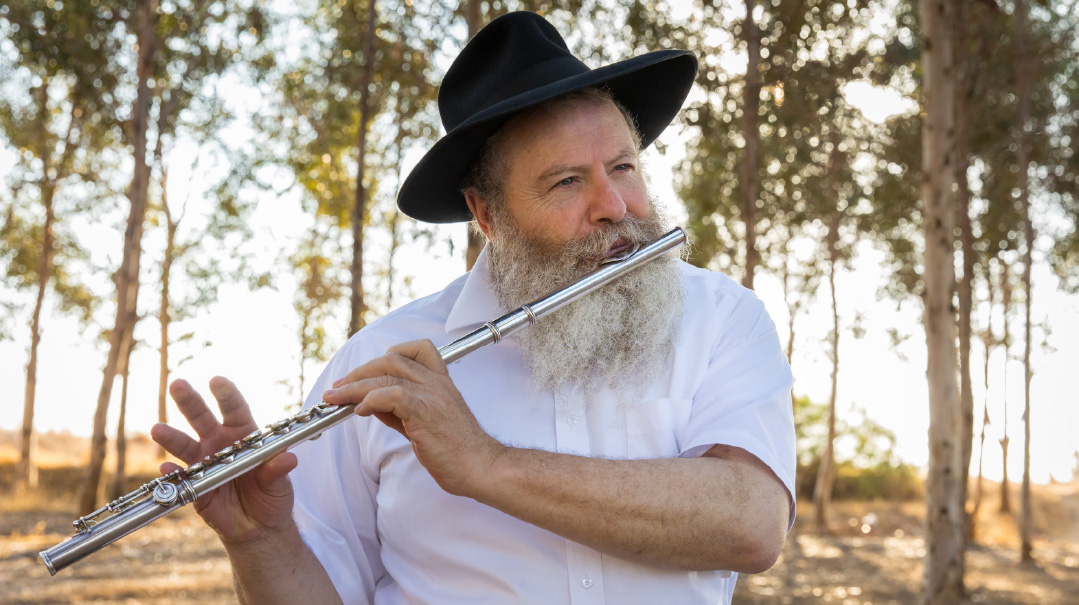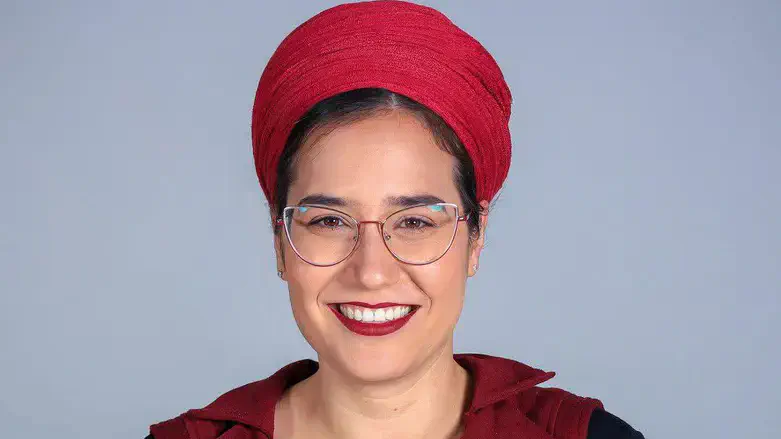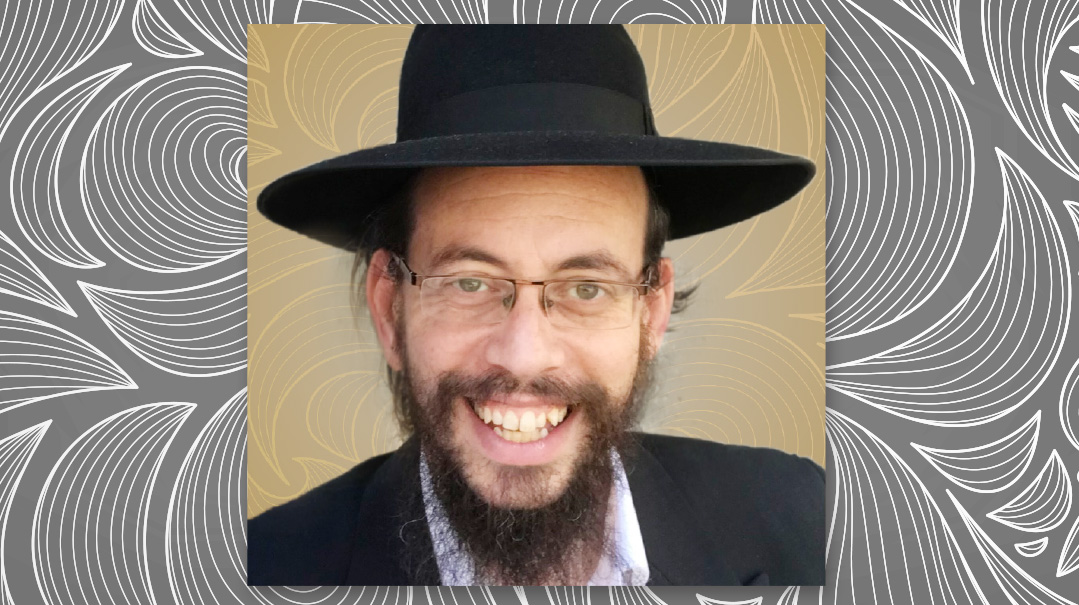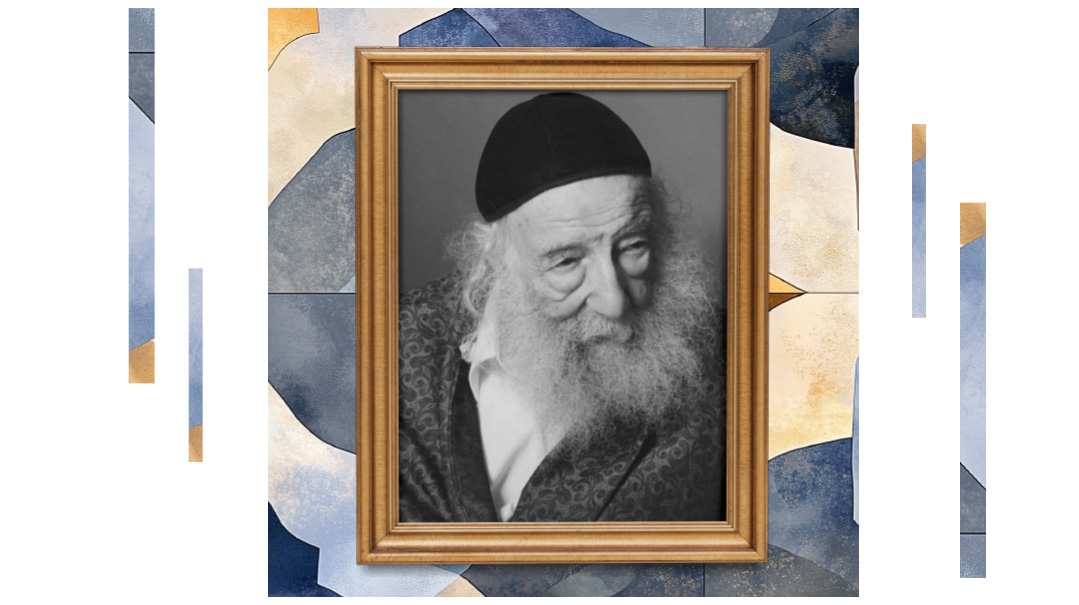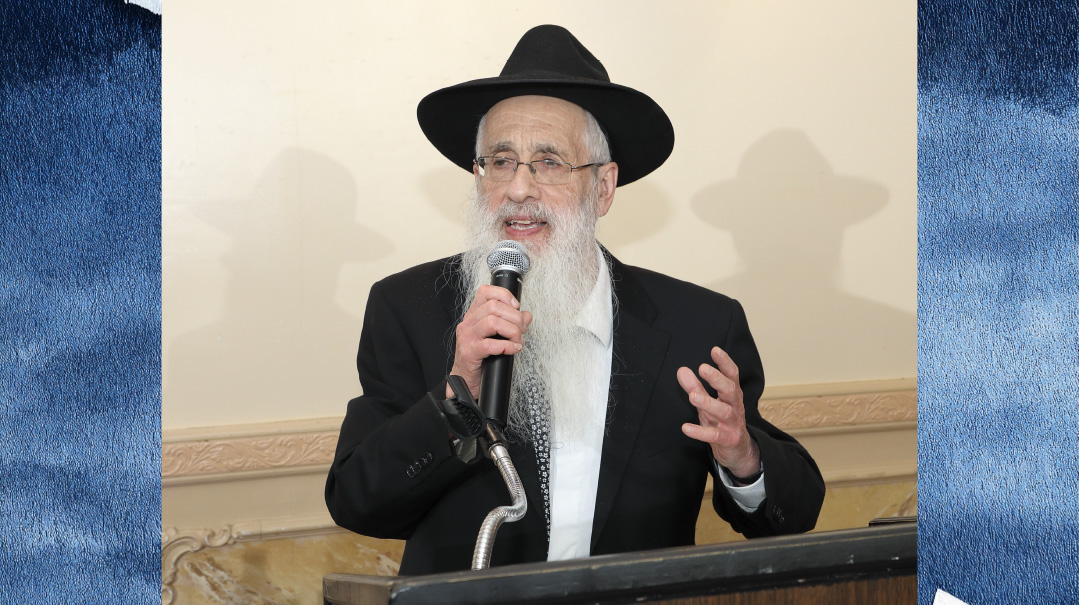He Held the Secrets to Success
| May 21, 2024A Tribute to Dr. Yosef Walder a”h

Look up Dr. Yosef Walder a”h, who was niftar on 16 Adar II at 73, and you’ll find phrases like, “brilliant scientist,” “innovative entrepreneur,” and “distinguished philanthropist.” Dr. Walder’s sons give us deeper insight into who this man was, what made him so unique, and what it is that the world lost when he passed.
Joseph Walder was born in 1951 in Philadelphia; his father was a furniture salesman, and a child of immigrants.
The family moved to suburban Chicago, where Joe grew up. Joe had a passion for science from the very beginning, and his father built him a basement chemistry lab for homemade experiments. He went on to earn both an MD and a PhD from Northwestern, eventually becoming a professor of biochemistry at the University of Iowa College of Medicine.
In 1987, he established Integrated DNA Technology (IDT — not to be confused with Howard Jonas’s communications company), which would grow over the years to become the leading provider of synthetic RNA and DNA for life-sciences research. IDT’s products and services are now used in virtually all aspects of biomedical research around the globe. An inspiring encounter with Torah Judaism in Skokie on Purim 1994 set him on a course of increased observance. He immediately moved to an apartment near the Skokie Kollel and Chabad, while still making the three-hour-plus commute back to his other home in Iowa City, near the company, as needed. About a year later, Dr. Yosef met his future wife Shira Malka, and in 1998, the family moved to a house in Chicago, where they identified some of the most important needs of the Jewish community that they set out to fill.
While the beneficiaries of Dr. Walder’s generosity span the globe, it is his hometown of Chicago and the surrounding areas that reaped the most from his transformative visions — Walder Education, Walder Science, and the Kehillah Fund to name a few.
“You know what he meant to you,” his son Mordechai said to the locals at the levayah, “but I don’t know if you know what you meant to him.”
Dr. Walder saw his chesed as merely “coming full circle,” for he felt an eternal debt of gratitude to the community that introduced him to Yiddishkeit.
Everything he accomplished was at the side of his life’s partner, Mrs. Shira Malka Walder. When she joined IDT, Dr. Walder split his own office so she could have her own. The tzedakah was theirs.
“Whenever he made a trip to the IDT Iowa branch,” remembers his son Moshe Chaim, “he would return for Shabbos and say he first had to stop at the local flower store to buy flowers for his ‘precious meideleh.’ ”
When it came to his scientific advancements, Dr. Walder’s number one priority was using the proceeds to support the Jewish community — through both his own innovative projects and his contributions to others’. It was never about how much he could make, but how much he could give. He’d pledge significant contributions in advance, as though he were saying to Hashem, “I am making myself into a kli to give, fill me up so I can do it!”
At the levayah, Moshe Chaim recalls a powerful line from Rabbi Gadi Levy: “The Walders donated most of what they earned.”
With such a “lishmah” motor powering the company, it is no coincidence that over the next two decades, IDT blossomed into the world’s leading manufacturer of high-quality, custom synthetic DNA (known as oligos). Today, this product has become an essential tool in genetic research and finding cures for diseases, a testament to Dr. Walder’s pioneering efforts.
In 2018, the Walders decided to sell IDT. The sale’s proceeds were used to establish the Walder Foundation — which supports Jewish life, science innovation, the performing arts, migration and immigrant communities, and environmental sustainability, among other causes.
“Wherever I go,” says Moshe Chaim, “when people realize who my father is, they beam with praise and tell me how lucky I am to be his son. Mordechai, my sister Kathryn, and I feel so blessed to have been raised in the home of someone so incredible. I now live in Yerushalayim with my wife and children, and I hope to raise them to remember their grandfather by following the lessons that he embodied for the world.”
Those lessons can be distilled into four main categories: humility, chesed, attention, and emunah. Dr. Yosef Walder parlayed those lessons into a life of accomplishment.
One: Humility
“They loved him and praised him like crazy,” remembers Moshe Chaim, “but he never put himself on a pedestal. If you were to walk into my house on a Motzaei Shabbos, you’d find him serving Melaveh Malkah to a group of men from the nursing home or others with mental disabilities. On Sunday morning, he was often reading the paper with these visors, or taking them out for a bagel breakfast.
“This is the same man who spent his days in high-power business meetings with some of the most wealthy and intelligent people in the country, sitting around a boardroom table with ears and eyes on him. The same man whom roshei yeshivah and kollelim would visit and show such reverence toward as they asked for his financial support. But there was not one ounce of gaavah associated with his chesed.”
At the levayah, a common theme was the similarity between Dr. Walder, whose first name was Yosef, and Yosef Hatzaddik. In particular — that Dr. Walder was not raised with privilege, and even as he rose in his wealth and stature, “he was still the same Yosef.”
“My parents’ home was modest,” Moshe Chaim explains. “They didn’t have a large master bedroom with an en suite bathroom, a norm that most people take for granted. If you saw him on the street, you couldn’t tell he was the CEO of a big booming business. Driving his old Buick with the keyhole you had to jiggle, he had no need for upgrades.
“In shul, my father sat quietly at the back. When he approached the rav after davening with a sh’eilah, there was no fanfare. No need for everyone to step aside because ‘Dr. Walder has a question.’ ”
His sister Diane would bring him to meet potential buyers of his product in Israel. “When he’d visit these secular college campuses,” says Moshe Chaim, “in his toned-down yeshivish garb, people were like, ‘Who is this guy?’ believing he had no shayachus to the world of science, intellect, or business for that matter. Then he’d open his mouth — suddenly they were all taking notes on whatever he said.”
One incredible story the family heard during the shivah came from a couple who live in Bnei Brak. A while back, their son in yeshivah had suddenly become paralyzed and needed many treatments. On one trip to America for surgery, they were stuck in a non-Jewish hospital in Coralville, Iowa, not far from where Dr. Walder worked, but in totally unfamiliar territory to this Israeli family.
In the darkness of that hospital, Dr. Walder showed up with his shining smile and shopping bags filled with kosher stuff. More than the food, it was the holy nourishment of an obvious Jewish presence that brought them immense joy in that spiritual desert.
The mother of this boy explained, “Dr. Walder could have had any one of his drivers or services bring the food. But he came himself, and that made all the difference.”
“When my father thanked others for the privilege of allowing him to benefit them,” Moshe Chaim says, “he actually meant it. Each recipient of his time and resources were made to feel they were doing him the biggest favor.”
Rabbi Yosef Posner, director of Chabad Lubavitch of Skokie, recalled how he once visited Dr. Walder’s office to receive an amount to be distributed to different causes.
“He sat down with a big legal pad and a pile of checks,” Rabbi Posner said, “and began writing and signing — so many checks! I was about to stop him and suggest that he make his life easier, give me one check and I’ll divide it up. But then he looked up at me with a huge grin and said, ‘This is so much fun!’ He loved writing those checks. I just couldn’t fathom taking that pleasure from him.”
Two: Chesed
Mordechai said that his father taught him, “When you are going through a hard time, find someone else who’s struggling and help them.”
“He never forgot what it meant to worry about paying your bills,” Moshe Chaim says, “so he had a lot of patience and understanding for those going through hard times. He once came home after a meeting with a board of school directors and told us that some of them were pushing hard for families to pay more tuition than they could afford.
“My father turned to them seriously and said, ‘If someone were to turn up the financial pressure in your home, imagine how much stress that would cause you and your family!’ ”
And so Chicago’s Kehillah Fund was born — rallying communal support around ensuring that every child can afford a high-quality Jewish education. The fund benefits a wide spectrum of K-8 Orthodox Jewish schools in Chicagoland equally. Thanks to the Kehillah Fund, many people are essentially donating to schools they don’t send their children to — forging the achdus Dr. Walder dreamed of.
“Dr. Walder was a visionary,” says his daughter-in-law, Tova. “He had this crystal clear picture of what he wanted to accomplish, and then he came up with the most effective and far-reaching way to do it.
“Take Walder Science for example — he cared about science, and about giving Jewish children a top-quality worldly education. But he didn’t just deliver a great science class or train a few teachers. He created a system, an entire center dedicated to educating Jewish science and math teachers, and then paid the trained teachers higher salaries. He set up a place where kids can come and experience hands-on science activities on a regular basis at an affordable cost, like a science museum right in their backyard.”
Another one of his investments was in Walder Education, an all-in-one resource center for Jewish educators providing well-designed materials, curricula, professional development, and more. On a visit to observe the center, the Novominsker Rebbe was so impressed that he wanted to use it as a model across the country.
Three: Attention
At the levayah, Mordechai said that his father also taught him, “When you walk into a situation, you’ve got to find the people who need help most, and give them help — not just financially but emotionally, become their friends.”
“My siblings and I referred to our home as a revolving door,” Moshe Chaim says. “People came in at all hours — there was a line to the street. My father didn’t pick and choose. Anyone was welcome. They’d come really late at night, like 11 p.m., and my father would tell them to come back in twenty minutes or an hour when he finished helping me with my homework. It was so late! But he always let them back in.
“And then there was my mother, making him delicious warm soup to eat as he sat with the meshulachim. People would always leave the house in higher spirits than when they came in, feeling that their project — or their very being! — was so valuable and that this man had the zechus to give to their cause.”
“Hundreds of yesomim have lost their father,” said Rabbi Efraim Twerski of Chicago’s Congregation Khal Chasidim at the levayah. “He would ‘adopt’ orphans.”
Two large Israeli families in particular had complicated situations and no parents available to care for them. They became bnei bayis. The Walders paid for their education and all their needs, married them off, walked them down the aisle, and set them up with their apartments in Eretz Yisrael.
“My father identified strengths and potential in people, and he would give them a leg up, he’d give them jobs,” says Moshe Chaim. “So many guys in the company got there because they were out of luck or had dropped out of school. My father would take them under his wing and train them in. He gave them a chance, and they rose to the occasion.”
When Dr. Walder became ill in more recent years and his activity slowed, many people whom the rest of the family never heard of reached out, because suddenly they had no one sending their paycheck or taking care of them emotionally.
“We had no clue how far his kindness spread,” Moshe Chaim says, “and we’re still continuing to find out.”
Moshe Chaim admits that at a young age he thought this “open home” thing was kind of strange. Why couldn’t his father just make hours, set some boundaries?
“Only later on,” he says, “could I appreciate that this was his life’s mission, not a side gig.
“My father knew how to set limits — in a polished and dignified way.” Moshe Chaim says he often saw men gibing his father in shul, even yelling that he didn’t give them enough support, or harshly criticizing something he did. “He wouldn’t push them off, and he never lost his cool or lashed out. He would acknowledge them, and firmly but nicely walk away. His calm wasn’t normal.”
In his teenage years, Moshe Chaim was struggling, as teenagers do, and he had already “downgraded” in terms of school.
“But then I was considering going a step further, to a very modern place. I was so nervous to bring this up with my father. I knew it went against his values.
“As soon as I broached the subject, he made sure to tell me, ‘Whatever you do, I love you just the same.’ Then he said, ‘Sure, I can speak to you about the pros and cons…’.
“My mind was no longer racing with indecisive thoughts. I was calm, and now I was instilled with the ability to decide on my own, without the pressure of worrying about what he might think. I stayed in the more religious school — and today I am still learning a full day in kollel.
“Whenever he’d come to visit our home in Eretz Yisrael, there were never strings attached to his kindness. We didn’t have to tiptoe around my father, the ‘big CEO doctor.’ Like he did for everyone else he met, he conveyed to me the feeling that I was doing him the favors and not the other way around.”
Four: Emunah
Shortly after Dr. Walder lost his own father — his anchor and inspiration — he went to visit his religious sister, Diane Gassel, at her home in Chicago. This was Purim day 1994, and Dr. Walder’s little nephew insisted that they visit a neighbor’s seudah, which just happened to be the Skokie Kollel’s Purim Bash in the home of Rabbi Dovid Siegel.
“Little did my father know that this encounter had been strategically planned — Diane’s husband had told Rabbi Siegel about his non-religious brother-in-law, and they were just waiting for the day when ‘Joe’ would visit so the introduction could be made. Genius that my father was, Rabbi Siegel — who is a highly intelligent man himself — would be most appropriate to ‘initiate’ him. And so it was that at the Siegels’ mishteh Purim, he and Rabbi Siegel spoke — two brilliant men, with the one who had Torah teaching the one who did not have it yet.”
Dr. Walder witnessed a most beautiful scene: drunken men, who seemed to be reaching the highest of heights and spouting out words of Torah wisdom. Right then and there, he decided this was it. He built a relationship with the Skokie Kollel, as well as with the Chabad Lubavitch of Skokie.
His newly established rebbeim, Rabbi Siegel, Rabbi Posner, and others were concerned. “You’re going too fast, Joe. Slow down so it sticks.”
“When something resonated with my father as true,” Moshe Chaim says, “he ran for it.”
Indeed, in less than one month, he went from bareheaded to black hat and never looked back.
But Dr. Walder wore many more hats; there are those who will remember him for the indelible mark he left on the field of biotechnology research. Others benefited through yeshivah tuition assistance from the Kehillah Fund. And then there are all of the teachers who became such qualified educators through the resources provided at Walder Education and Walder Science. Plus all of the organizations and individuals who experienced his warmth firsthand.
“My father made this change 29 years ago,” Moshe Chaim passionately told the crowd at the levayah, “and the world is still shaking from it.”
“Many baalei teshuvah start off davening super slowly, and then as they become more used to the Hebrew, they speed up — at least a little! — just like everyone else,” says Moshe Chaim. “But not my father. Whether it was Shemoneh Esreh, bentshing, al hamichyah — it was always recited from a siddur or a card, and he pronounced each word with meticulous kavanah. He’d always be the last one at the table after a seudah, still buried in his bentsher. When we would go to the 8 a.m. Shacharis minyan, he’d be deep in conversation with Hashem even when the 9 a.m. minyan had already left.”
While today many businessmen understand the need for a “halachic advisor” to oversee the ins and outs of a business, when Dr. Walder hired a rav to do this very job for IDT in its early years — checking all matters of Choshen Mishpat, shemiras Shabbos, mezuzos — it was a novel idea.
“The biggest lesson I learned from my father,” Mordechai said, “was that when you walk in the way of Hashem, everything will lay itself out before you the way it should.”
Moshe Chaim described one memory in particular that stands out in his mind.
“It was over a decade ago, but I can still remember standing there with my father in the Kosel Plaza. ‘Do you want to know the secret of my success?’ My father asked me. ‘It’s that 99.9999999 percent is from Hashem, the other 0.0000001 percent is knowing it’s from Him.’ And what’s most incredible is that he really did believe this. That was his secret to success, and that was who he really was.”
(Originally featured in Mishpacha, Issue 1012)
Oops! We could not locate your form.

